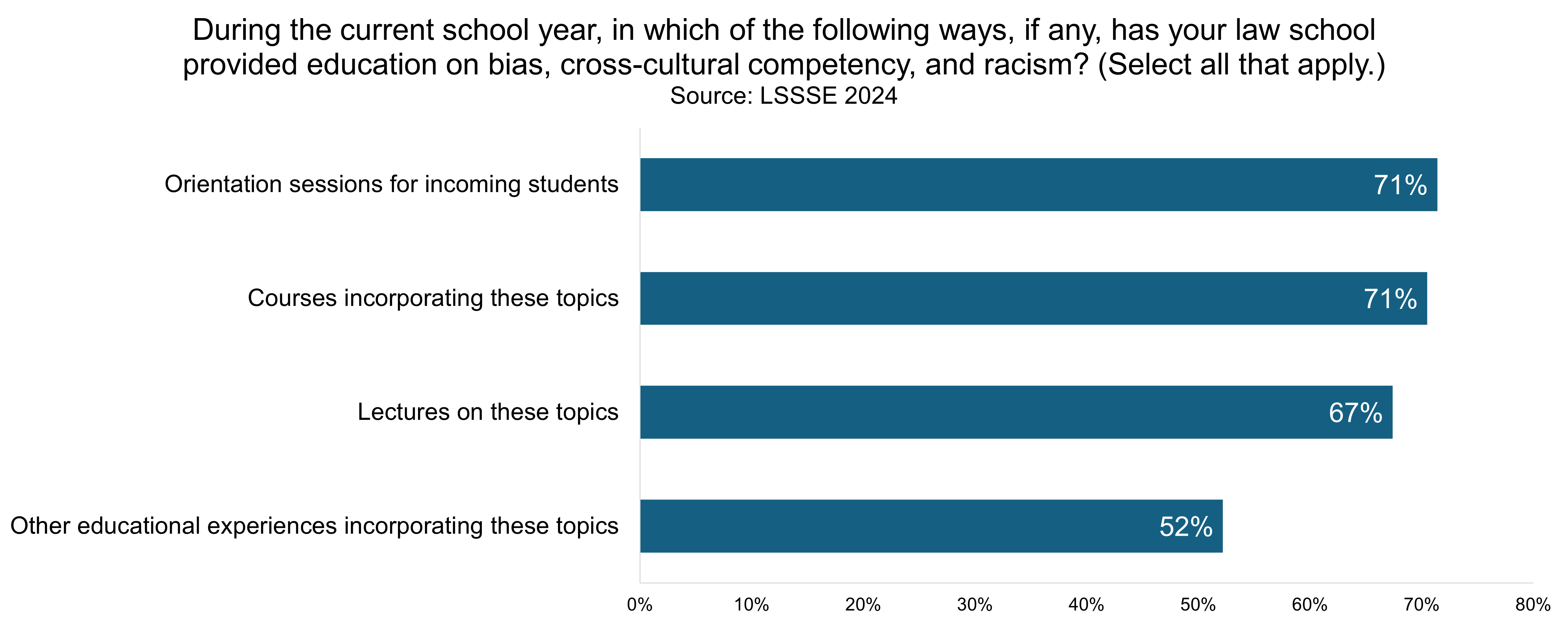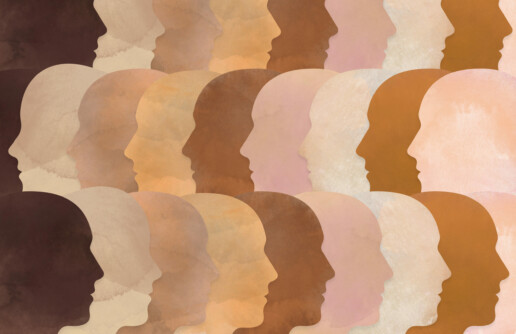Assessment of ABA Standard 303(c)
The American Bar Association (ABA) Standard 303(c) mandates that law schools provide students with substantial education on bias, cross-cultural competency, and racism to ensure they are equipped to serve a diverse client base and uphold justice in an inclusive legal environment. This requirement, effective for all law schools accredited by the ABA, emphasizes integrating this training at critical junctures in a law student's education, such as during orientation and within a course prior to graduation. Standard 303(c) encourages schools to create meaningful, context-specific programs that prepare future lawyers to understand and navigate the societal and cultural complexities affecting the legal system.
To aid law schools in evaluating their success toward meeting the requirements of Standard 303(c), LSSSE began asking questions about bias and anti-racism education during the 2024 survey administration. The question asks “During the current school year, in which of the following ways, if any, has your law school provided education on bias, cross-cultural competency, and racism? (Select all that apply.)” and gives the following options:
- Orientation sessions for incoming students
- Lectures on these topics
- Courses incorporating these topics
- Other educational experiences incorporating these topics
Substantial numbers of law students are receiving bias, cross-cultural competency, and anti-racism training in each of the four venues. Orientations for incoming students and courses incorporating these topics were the most selected answers, encompassing 71% of students. Two-thirds (67%) of students had received lectures on these topics, and a little over half (52%) of students participated in other educational experiences incorporating these topics.

ABA Standard 303(c) represents a step toward fostering a more inclusive and culturally aware legal profession prepared to serve diverse communities with empathy, insight, and a commitment to equity. By mandating that law schools provide substantial education on bias, cross-cultural competency, and racism, this Standard ensures that future lawyers are equipped not only to recognize but also to challenge the social and cultural biases that can impact the justice system. LSSSE data show that the majority of law students are receiving this essential training through orientations, lectures, and integrated courses. To assess whether students at your law school are having these experiences and to compare your law students to the national averages, sign up for LSSSE 2025. Registration is now open.

